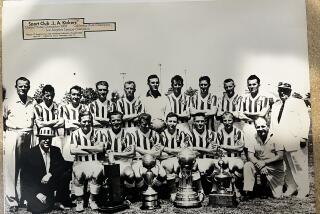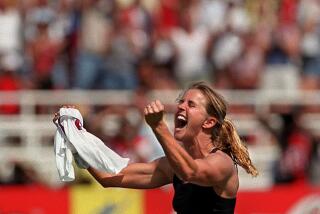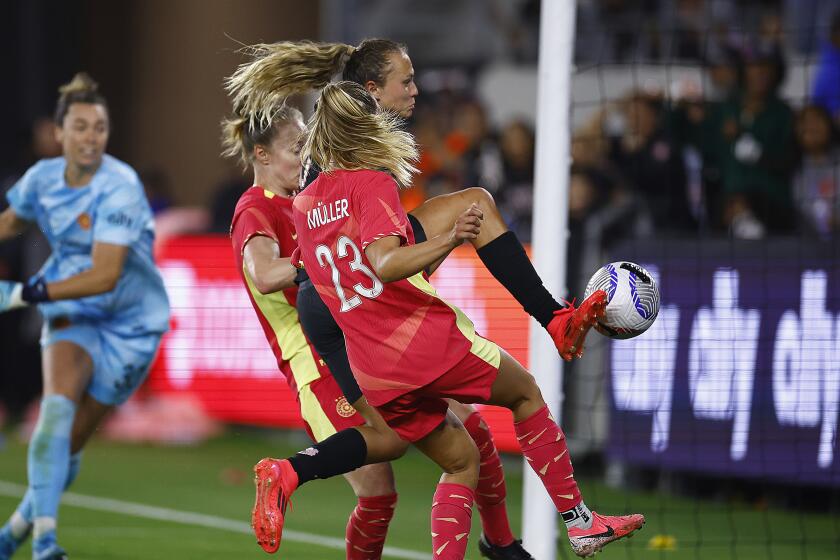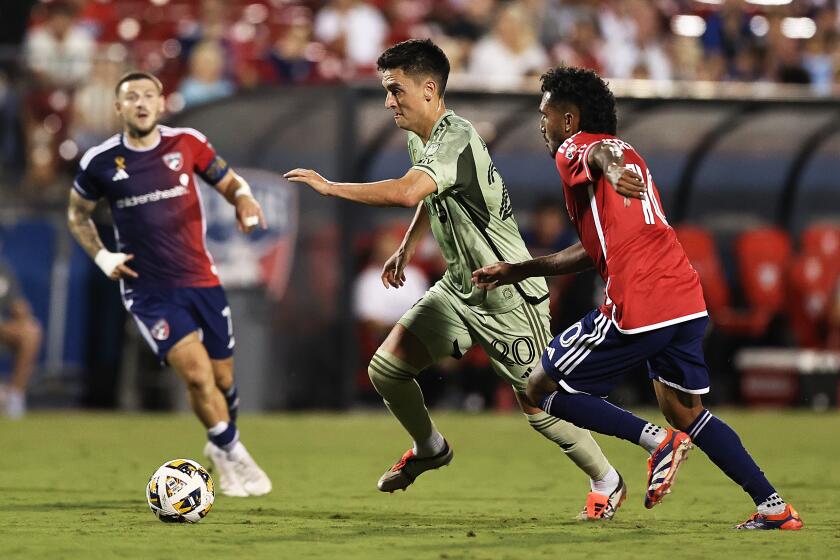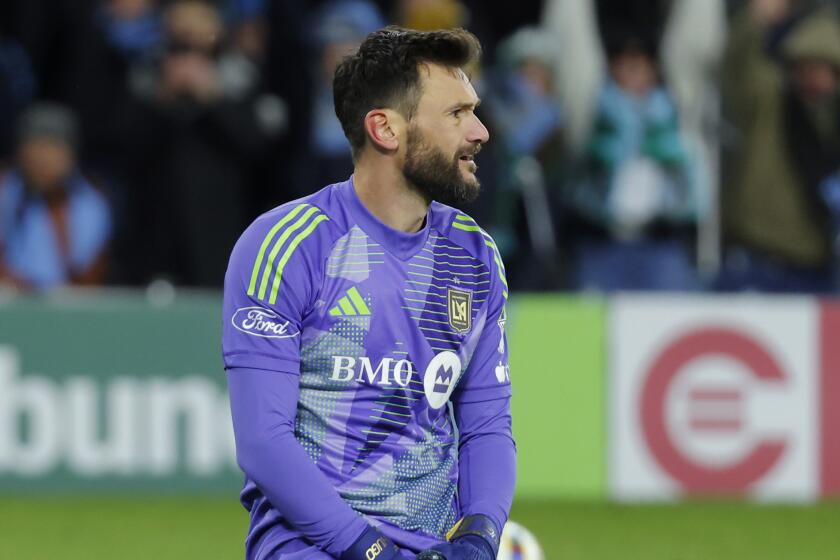World Cup: South Africans feel old possibilities anew
Far from the soccer traffic jams, just beyond the wealthy gated community, the people of Diepsloot township began drifting from their shacks and little houses in the early afternoon: the jobless, the orphans with dreams of being soccer stars, the old men wearing their best clothes and the girls showing bare midriffs. They sauntered along the dusty, rubbish-strewn streets, past the bars, the hairdressers, the kiosks and “taylors.”
It was a day when being poor meant not having a ticket. But it was still their day.
Rachel Zulu joined the joyful stream heading for the township TV park Friday to watch the first match of the World Cup: South Africa’s own team, Bafana Bafana, against Mexico.
For Zulu, the day’s miracle was just being alive; not having a ticket wasn’t so bad.
“I want to watch Bafana Bafana because I am happy that I’m still alive for 2010,” said Zulu, 43, whose monthly salary of $70 wouldn’t buy a ticket for most Cup matches. “You know what, I’m HIV-positive and I’m proud of it. But I didn’t think I’d still be here.”
Sixteen years after apartheid ended, patriotism and pride seem faded memories in this still-divided nation. Hosting the World Cup stokes that battered sense of pride, but in the weeks before the tournament, the more the anxious mantras echoed about the “rainbow nation” and “proud South Africans,” the less convincing it all seemed.
Until this week, when the swell of joyful sport made greatness seem possible. South Africa suddenly saw itself as the land of miracles again.
In Diepsloot on Friday, the mood was distilled joy. Most of the people own televisions; they just wanted to watch the match in the community of a friendly crowd in this township outside Johannesburg.
Peter Malapile, 39, blinked awake on that one day in a lifetime with hope and optimism shining in.
“I thought, Bafana Bafana is going to win the World Cup,” he said. “South Africa can earn some money. Jobs will be there. Everything is going to be OK.”
Many had not heard the day’s tragic news, that former President Nelson Mandela’s 13-year-old great-granddaughter had died in a car accident on the way home from the kickoff concert Thursday night, and that the “Old Man” was grieving, so he would not attend.
The aging screen at the TV park was almost impossible to see under the harsh slant of the evening sun. You could just make out the the Bafana Bafana bus arriving at Soccer City Stadium in Soweto. The Diepsloot crowd raised its vuvuzelas, the noisy plastic horns South Africans have made famous, and blasted praise to the skies.
“I can’t even explain how I’m feeling,” said Freddy Ndou, 35, a nightclub bouncer. “It’s like I feel like I can do everything. I feel like I can even fly. I can do everything. Bafana Bafana is going to win!”
A mother tooted her vuvuzela with a small boy on her shoulders blowing his at the same time. There were vuvuzelas that sounded like colic-racked babies. There were vibrato vuvuzelas that whined and hummed.
But for some young men, the volume wasn’t enough. They had cut the horns in half and added a length of plastic pipe in the middle.
“I wanted to make it louder,” said Nkosinathi Khumalo, 14, an orphan being raised by his grandmother. “I took a piece of water pipe and connected it.”
He said he plans to finish school but that his real dream is to be a soccer star, and that he already plays for Real Madrid. (That’s the Diepsloot version, not the Spanish club voted the most successful soccer organization of the last century by the sport’s governing body, FIFA.)
At halftime, with no goals scored, the chill had set in on this late fall evening. Everyone decided to leave the TV park at the same time, converging on the steel gate, bodies crushed like clothes in an attic trunk.
They spilled out, heading for home, or for the shebeens (bars).
A press of men sat crammed on plastic chairs and crates under the corrugated tin roof and fluorescent lights of Bra Femi’s Tavern.
Suddenly, a goal. The shebeen exploded like a firecracker. Men danced on their toes like children. Everyone was screaming and laughing, blowing vuvuzelas. They touched fists, then with fists still connected knocked thumb upon thumb in a joyfully complicated victory gesture.
As time passed, they had already won — in their minds. The troubling remaining minutes of the game crawled by, slowly.
Another goal, this time for Mexico. There was a shattered silence.
As Bafana Bafana missed shot after shot, the team’s coach, Carlos Parreira, clutched his head as though in physical pain, and the people in the tavern did the same.
George Magampa had brought a chair to the bar and sat in his own bubble of space, quietly watching, speaking to no one. With a minute to go, the 1-1 draw already clear, he picked up his chair to leave.
“Eish,” he said, a South African expression conveying anything from despair to astonishment to resignation.
“OK, I can say I’m impressed. But I am disappointed. Because the score was supposed to be 3-1,” he said, referring to missed shots by Bafana Bafana.
“But anyway, I’m happy with a draw because they said we were going to lose.”
Ndou, the bouncer, was taking a longer view. Like everyone in Diepsloot, he’s convinced that Bafana Bafana will make it to the final. But for him there’s more to the tournament.
“It will leave a good legacy for our kids and our kids’ kids to know that once South Africa hosted the World Cup,” he said. “We’ll know that we once hosted a tournament and we can compete with the world.”
